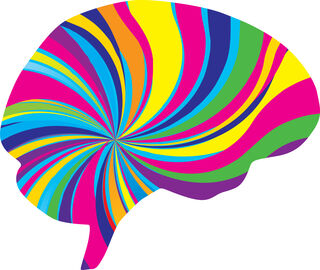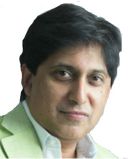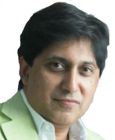Psychopharmacology
Jonathan Cole's Skepticism About Psychedelics
Part 1: Why would such a proponent of psychological cocktails be concerned?
Posted September 25, 2020

This post is part one of a two-part series. You can read part two here.
Jonathan Cole has been described as "a unique personality, a creative clinical scientist, the consummate visionary." Many think of him as the "father of psychopharmacology." As the head of the NIMH Psychopharmacology Service Center in 1967, he pioneered the development of drugs for use in psychiatric conditions. And as chief of psychopharmacology at Harvard and McLean Hospital, he was noted for his almost disturbingly intuitive clinical insight about drugs that would seem to miraculously work in unprecedented ways to help people with depression, schizophrenia, and PTSD.
Dr. Cole was pretty direct and exploratory: As Barbara Beake, his administrative assistant of 35 years explained, he was "totally straightforward and honest," and fellow psychiatrist Alec Bodkin said, "He was egalitarian to a fault, as well as generous, respectful, and loyal." Indeed, as someone who was hired by him and worked for him as a psychopharmacology fellow, and also mentored by him as a resident, I can attest to his directness and his very experimental approach to psychopharmacology. He had a radical openness to trying anything that he deemed safe, and during my training, he frequently recommended drug cocktails for my patients that gave me reason to pause. Ever so sensitive to any of my concerns, he would add, "Say, Dr. Cole said." And in my experience, he was usually correct.
Questions by Dr. Carhart-Harris: So, when the notable and deep-thinking psychedelic researcher Dr. Robin Carhart-Harris, a scholar with a Ph.D. in psychopharmacology and a master's degree in psychoanalysis, points to Dr. Cole's concerns about psychedelics with some suspicion, it is understandable, yet it does not resonate as a character description of Dr. Cole. This in itself, gave me reason to pause to reflect on what I knew of Dr. Cole's attitude in person and what he had written about. Given the renewed enthusiasm about the therapeutic potential of these drugs, some of which I share, I believe that the Carhart-Harris-Cole chasm is a signal worth exploring.
What Dr. Cole said: Before we go to my subjective leanings, Dr. Cole's concerns are worth noting. In a landmark overview, he noted several effects of psychedelics that troubled him. Among them, were "paranoid delusions," "intense self-loathing with suicidal impulses," and "disorientation," and he added that they "have become invested with an aura of magic, offering creativity to the uninspired, 'kicks' to the jaded, emotional warmth to the cold and inhibited, and total personality reconstruction to the alcoholic or the psychotherapy-resistant chronic neurotic." Of course, many people did not experience any of these effects, but it helps to know that this may happen.
He explained: "On the West Coast, the effects are judged by some to be related to the insights of Zen Buddhism; on the East Coast, they are judged by others to lead the way to a new and free social order. Like the broom in 'The Sorcerer's Apprentice,' the drugs seem to have walked out of the laboratory into the outside world on their own feet and to have turned on the unsuspecting apprentice." He concluded that he occupied "a skeptical middle position, favoring the Scotch verdict of 'not proven.'" He added, "we feel strongly that this approach to therapy should neither be rejected out of hand as 'crazy,' nor accepted and applied in an uncritical manner, but should be subjected to careful study under closely controlled conditions."
Are studies worth their weight in mushrooms? This caution is well-deserved for any medication, not just psychedelics. But do studies really help us in the ways they are touted to? For instance, statins, which are widely used to reduce cholesterol, may provide dubious benefit if, as 19 studies have illustrated, lower LDL has no impact on your risk of death, or even increases your risk of death. Similarly, Dr. Cole himself, often an advocate of using the antidepressant Prozac, also later published a case series flagging the suicide-inducing possibilities of these drugs. While this was initially ignored, the FDA subsequently issued a black-box warning of this risk. And this decision remains a subject of controversy.
Findings in groups will tell you little for any given individual: Some people take this inconsistent effect of drugs to mean that science is unreliable, or that the drugs do not work at all. Clearly, the fact that many of these drugs work the way that they should for many people suggests that this cannot be true. It is more likely that individual variability in response thwarts consistent data. And this is likely to be true for psychedelics as well.
The problem is—double-blind studies offer limited value in this regard as they average out data and provide very little guarantee of what will work for a patient who walks into your office. In this regard, looking at individuals is the new direction that is opening up. However, it is no small task to tailor treatments for 7.8 billion people in the world, though technology may help us sift through this maze. And there is also the not-so-insignificant experimenter bias of many "scientific" investigators already favoring the drug since they like to use it.
Turning to drugs for psychological relief (or treatment of any illness) is probably not ubiquitously helpful. It is rare to have a 100 percent response rate that is enduring. However, one particular caution about the use of drugs for psychological relief is worth noting.
See Part 2


